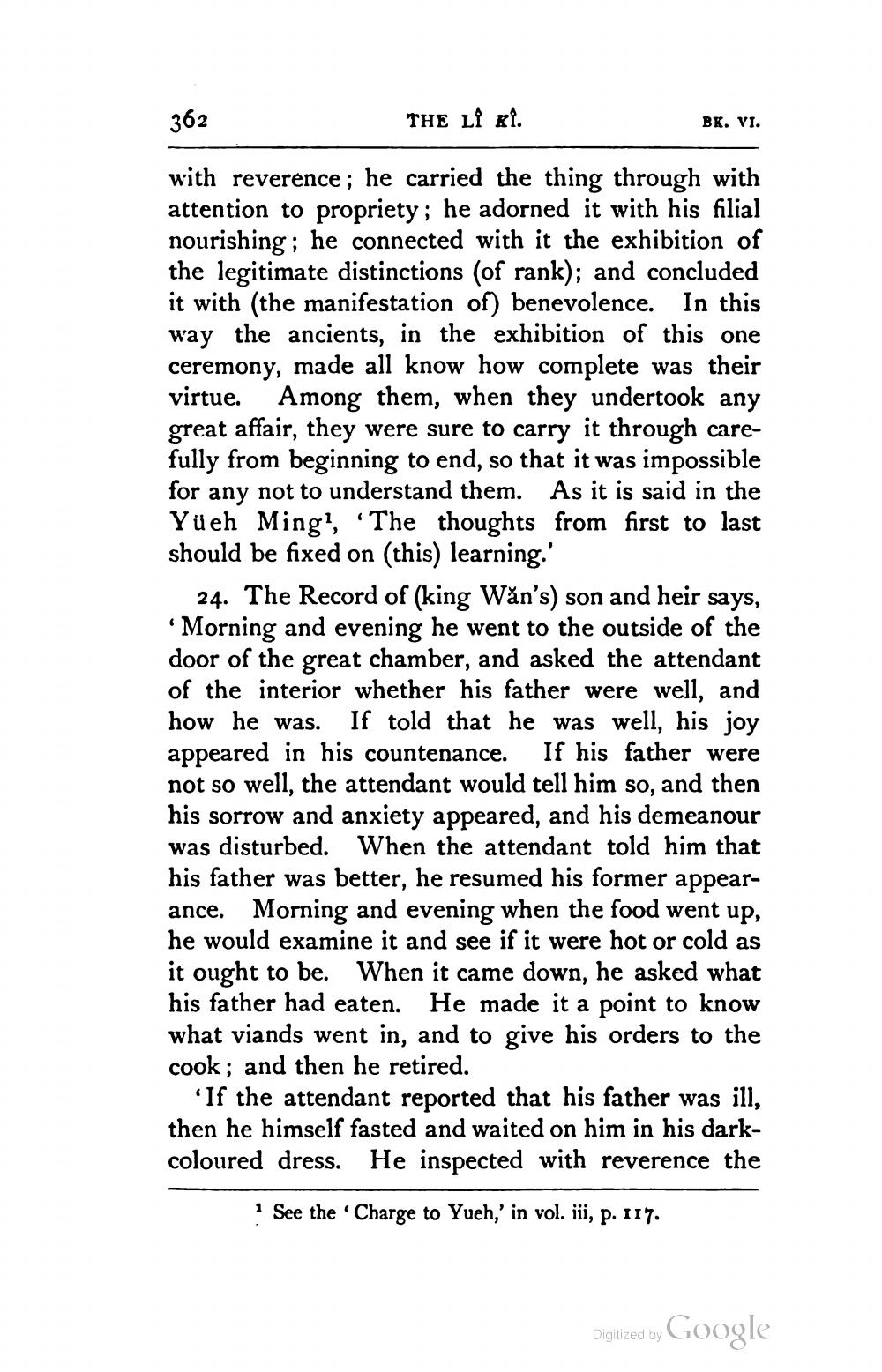________________
362
THE LÎ KI.
BK. VI.
with reverence; he carried the thing through with attention to propriety; he adorned it with his filial nourishing; he connected with it the exhibition of the legitimate distinctions (of rank); and concluded it with (the manifestation of) benevolence. In this way the ancients, in the exhibition of this one ceremony, made all know how complete was their virtue. Among them, when they undertook any great affair, they were sure to carry it through carefully from beginning to end, so that it was impossible for any not to understand them. As it is said in the Yüeh Ming?, “The thoughts from first to last should be fixed on (this) learning.'
24. The Record of (king Wăn's) son and heir says, Morning and evening he went to the outside of the door of the great chamber, and asked the attendant of the interior whether his father were well, and how he was. If told that he was well, his joy appeared in his countenance. If his father were not so well, the attendant would tell him so, and then his sorrow and anxiety appeared, and his demeanour was disturbed. When the attendant told him that his father was better, he resumed his former appearance. Morning and evening when the food went up, he would examine it and see if it were hot or cold as it ought to be. When it came down, he asked what his father had eaten. He made it a point to know what viands went in, and to give his orders to the cook; and then he retired.
'If the attendant reported that his father was ill, then he himself fasted and waited on him in his darkcoloured dress. He inspected with reverence the
? See the 'Charge to Yueh,' in vol. iii, p. 117.
Digitized by Google




